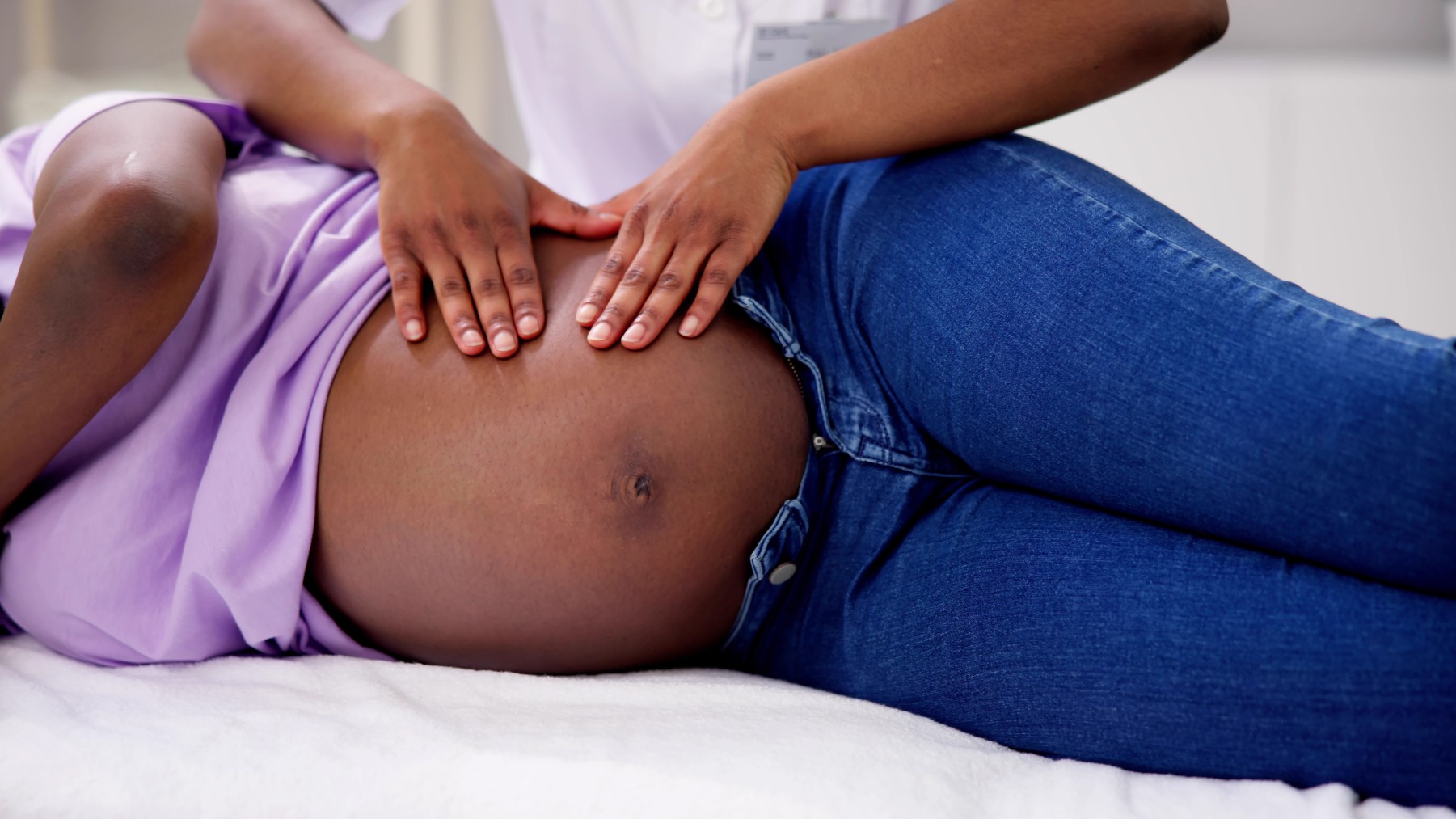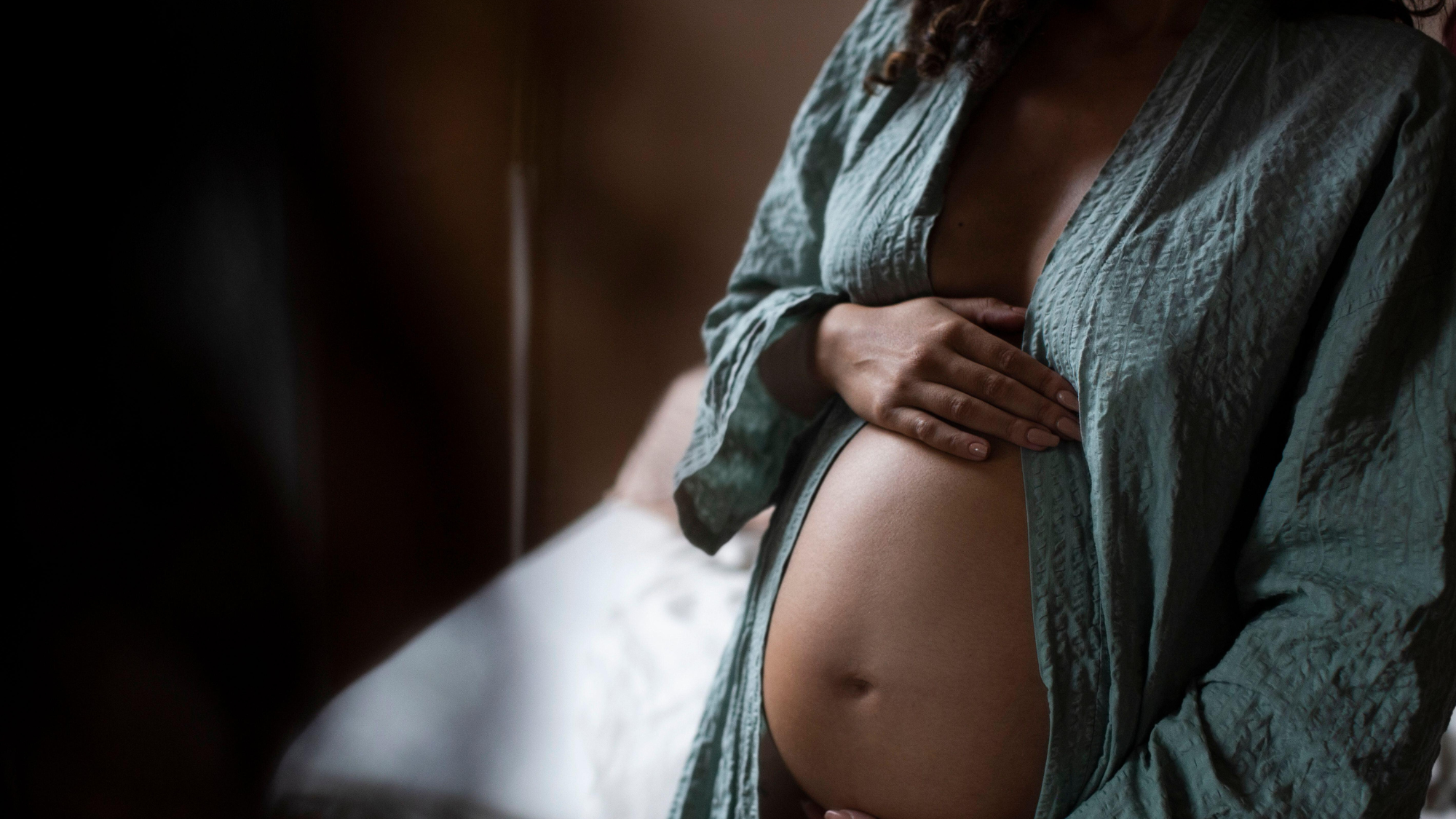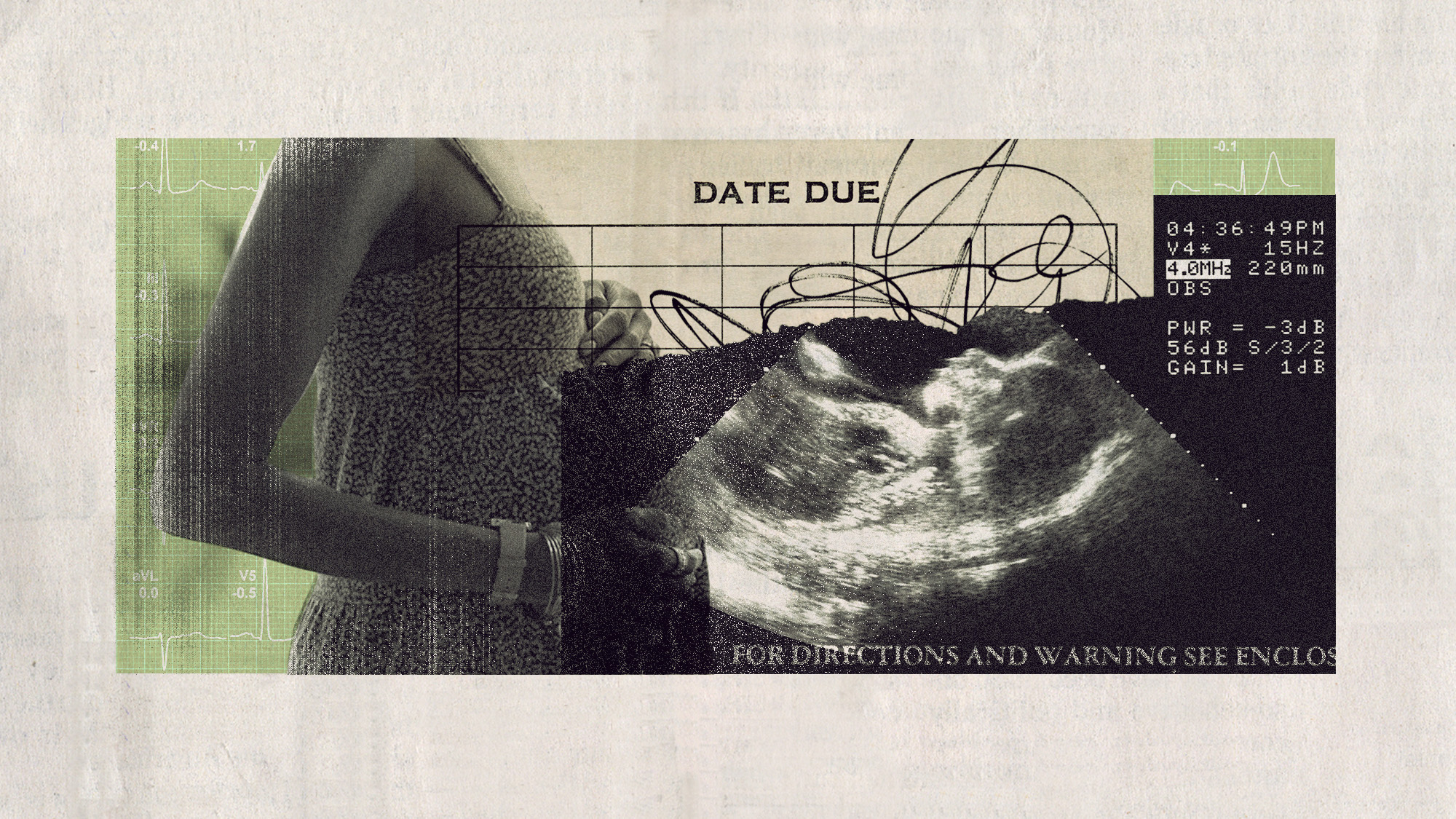Doulas are filling the gaps in maternal care for Black women
Birth workers are stepping up to support some of the most vulnerable pregnancies


A free daily email with the biggest news stories of the day – and the best features from TheWeek.com
You are now subscribed
Your newsletter sign-up was successful
The maternal mortality crisis among Black mothers is a well-documented issue that health care advocates have been ringing the alarm about for years. In recent years, more Black women have turned to birth doulas for support throughout their pregnancies and to assist in overcoming disparities in health care and bridging the care gap between Black women and other health care professionals.
What are birth doulas, and what do they do?
Doulas are trained professionals who provide "continuous physical, emotional and informational support" for pregnant clients before, during and sometimes shortly after childbirth to help clients have "the healthiest, most satisfying experience possible," said DONA International, a nonprofit organization initially known as Doulas of North America. The organization was founded in 1992 and was the first to train and certify doulas.
In the 1970s, a growing home birth movement stoked fears about hospital births using possibly unnecessary medical interventions during childbirth, leading more women to seek the help of doulas and midwives in the 1980s, according to the National Museum of African American History and Culture.
The Week
Escape your echo chamber. Get the facts behind the news, plus analysis from multiple perspectives.

Sign up for The Week's Free Newsletters
From our morning news briefing to a weekly Good News Newsletter, get the best of The Week delivered directly to your inbox.
From our morning news briefing to a weekly Good News Newsletter, get the best of The Week delivered directly to your inbox.
While midwives and doulas have overlapping duties, there is a critical difference between them. "Midwives provide medical care, and doulas don't," Maureen Salamon, the executive editor of Harvard Women's Health Watch, said in a Harvard Health Publishing post. Midwives are responsible for maintaining physical health throughout childbirth. Most midwives have completed medical training, which may vary based on state laws. Doulas do not perform medical tasks, but they help laboring women "remain comfortable and calm" by employing various methods that include "suggesting comfort measures and optimal positions for labor and pushing," Salamon said.
Doula training varies widely, as there are no formal rules requiring a license or certification. Still, many doulas seek accreditation from the more than 100 independent organizations that offer some type of training, per the National Health Law Program. Doulas usually meet with the pregnant person and their spouse or partner every few months to build a rapport. They are on call to support clients who have gone into labor and are present during the birth process. This can be particularly important to women with limited resources who might "otherwise be alone during the later stages of pregnancy and birth," said Salamon.
How can doulas help improve Black maternal health?
Doulas who are integrated into the communities they serve can provide "culturally and linguistically congruent care" that supports communication between clients and their health care team, according to a blog from Drexel University College of Medicine's Women's Health Education Program. Black women’s health organizations have identified this factor as an "essential aspect of the birthing experience."
Studies have shown that some of the mistreatment Black women face is a systemic issue influenced by racial bias. A study published by the American Journal of Emergency Medicine in 2019 found that Black patients were 40% less likely to be prescribed medication for acute pain. Another 2016 study showed racial bias in pain assessment by medical trainees, as well as unfounded beliefs about biological differences between Black and white patients, like the "misconception that Black patients had thicker skin than their white counterparts," CNN said. "I do notice that once a doula walks in the room, [that type of racial-motivated mistreatment] is less likely to happen," doula Ebonie Karma Tudor said to the outlet.
A free daily email with the biggest news stories of the day – and the best features from TheWeek.com
Research suggests hiring a doula can be beneficial during childbirth and the postpartum period. A 2013 study published by The Journal of Perinatal Education found that mothers who had doulas were four times less likely to have a low birth weight baby, two times less likely to have complications during the birth and more likely to initiate breastfeeding than those who lacked doula support.
While doulas are providing what many consider to be a necessary service for Black mothers, maternal health advocates say the "high stakes, high demand and short supply" has led to rising burnout among birth workers, said The Washington Post. It is because doulas are not supposed to be "emergency triage care in every situation," fulfilling the roles of lawyers, ER doctors and therapists, but "that's what we're expecting of doulas right now," Kanika Harris, the senior director of maternal and child health at the Black Women's Health Imperative said to the Post. "Now, I have to train doulas on hospital policies and human rights. It can't just be the training I took on birth."
Theara Coleman has worked as a staff writer at The Week since September 2022. She frequently writes about technology, education, literature and general news. She was previously a contributing writer and assistant editor at Honeysuckle Magazine, where she covered racial politics and cannabis industry news.
-
 Switzerland could vote to cap its population
Switzerland could vote to cap its populationUnder the Radar Swiss People’s Party proposes referendum on radical anti-immigration measure to limit residents to 10 million
-
 Political cartoons for February 15
Political cartoons for February 15Cartoons Sunday's political cartoons include political ventriloquism, Europe in the middle, and more
-
 The broken water companies failing England and Wales
The broken water companies failing England and WalesExplainer With rising bills, deteriorating river health and a lack of investment, regulators face an uphill battle to stabilise the industry
-
 ‘Zero trimester’ influencers believe a healthy pregnancy is a choice
‘Zero trimester’ influencers believe a healthy pregnancy is a choiceThe Explainer Is prepping during the preconception period the answer for hopeful couples?
-
 Stopping GLP-1s raises complicated questions for pregnancy
Stopping GLP-1s raises complicated questions for pregnancyThe Explainer Stopping the medication could be risky during pregnancy, but there is more to the story to be uncovered
-
 Choline: the ‘under-appreciated’ nutrient
Choline: the ‘under-appreciated’ nutrientThe Explainer Studies link choline levels to accelerated ageing, anxiety, memory function and more
-
 RFK Jr. sets his sights on linking antidepressants to mass violence
RFK Jr. sets his sights on linking antidepressants to mass violenceThe Explainer The health secretary’s crusade to Make America Healthy Again has vital mental health medications on the agenda
-
 The controversial Free Birth Society
The controversial Free Birth SocietyThe Explainer Influencers are encouraging pregnant women to give birth without midwife care – at potentially tragic cost
-
 Nitazene is quietly increasing opioid deaths
Nitazene is quietly increasing opioid deathsThe explainer The drug is usually consumed accidentally
-
 The plant-based portfolio diet invests in your heart’s health
The plant-based portfolio diet invests in your heart’s healthThe Explainer Its guidelines are flexible and vegan-friendly
-
 The rise in unregulated pregnancy scans
The rise in unregulated pregnancy scansUnder The Radar Industry body says some private scan clinics offer dangerously misleading advice
